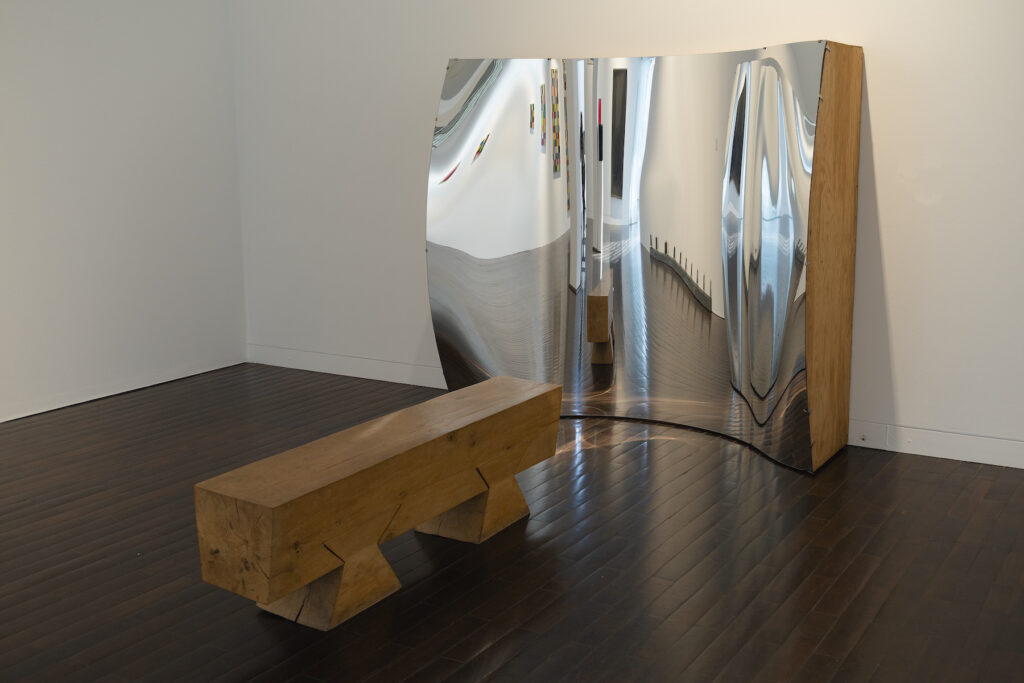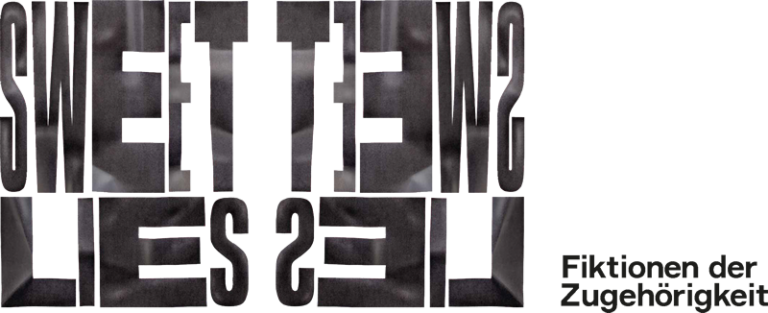Robert Morris
* 1931 in Kansas City (MO), USA
† 2018 in Kingston (NY), USA

Robert Morris became a pioneer of Minimalism in the 1960s with works that were reduced to their basic geometric forms. Reflective surfaces play a decisive role in this. Through the use of the parabolic mirror, Morris achieves a mirror glass deformation that both irritates viewers and invites them to interact with the object. It is never possible for the work to look exactly the same upon repeated viewing; it changes its appearance with each viewing. In doing so, the object is able to absorb the surrounding space and thus to reflect back a distorted image of the environment in order to finally make it possible to experience it anew.
The same applies to the viewers, thus initiating the search for personal and collective Identities. The distorted mirror image becomes the starting point for becoming a subject and locating oneself. It can serve as a metaphor in which the individual reproduces himself as a subject. The focus here is on the world of (self-)images and associated projections. Only in the discourse between the subject and its environment can the individual be formed. In this process, we define our personal identities not only by Belonging to other groups that are similar to us, but also in distinction from others. Our identities are thus dependent on identifications through and with others. This is only possible through a form of self-reflection via the detour of the mirror, that is, a third-person reference. Accordingly, one’s own identities cannot be formed without working with affiliations and demarcations. The individual must first perceive the structures in which he or she moves and which have produced him or her in order to be able to reflect on and influence himself or herself. Our identities are not all given in advance or a static whole, they are formed from various factors. We are always also what we are not.
In recourse to Jacques Lacan’s mirror stage, it becomes all the more clear that the mirror image juxtaposes the real self, which can never be finally defined, with an imaginary other, thus leading to an entanglement of wishful image and projection surface. It is the experience of the split ego between the image of oneself and the supposed image in the mirror, as well as the associated projections, that make this theme interesting for contemporary art.
